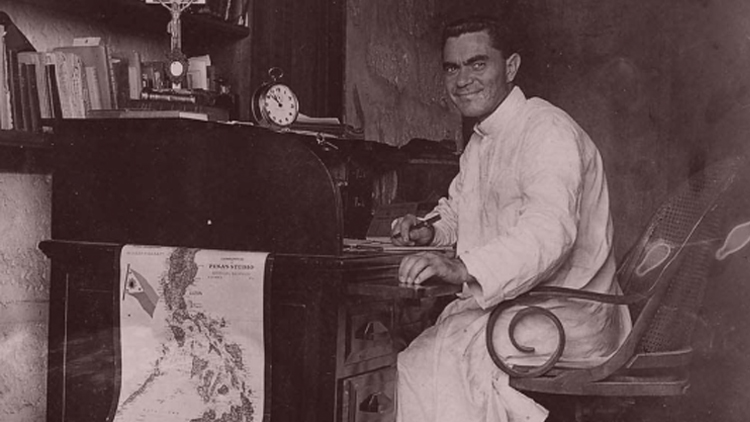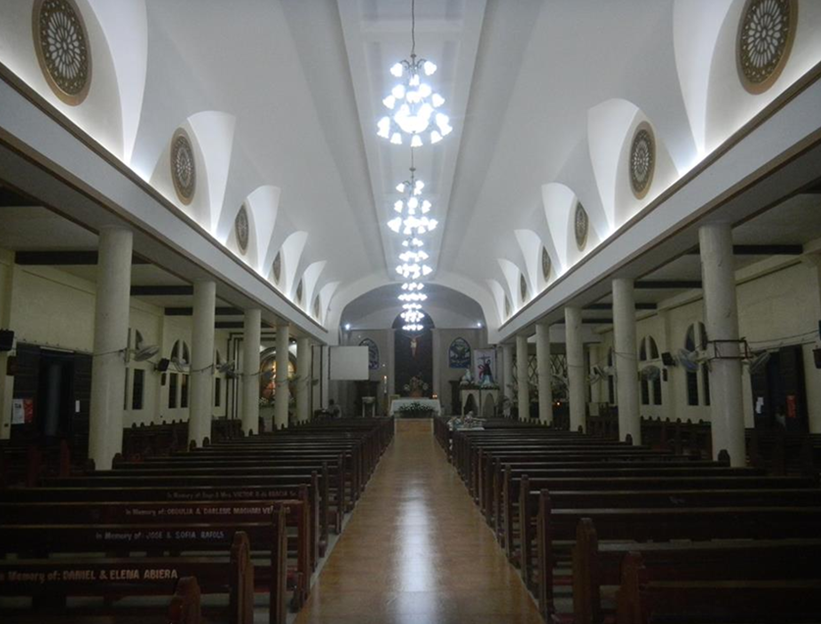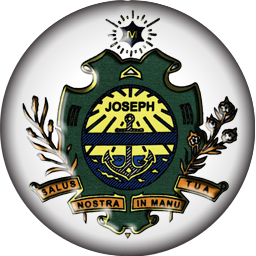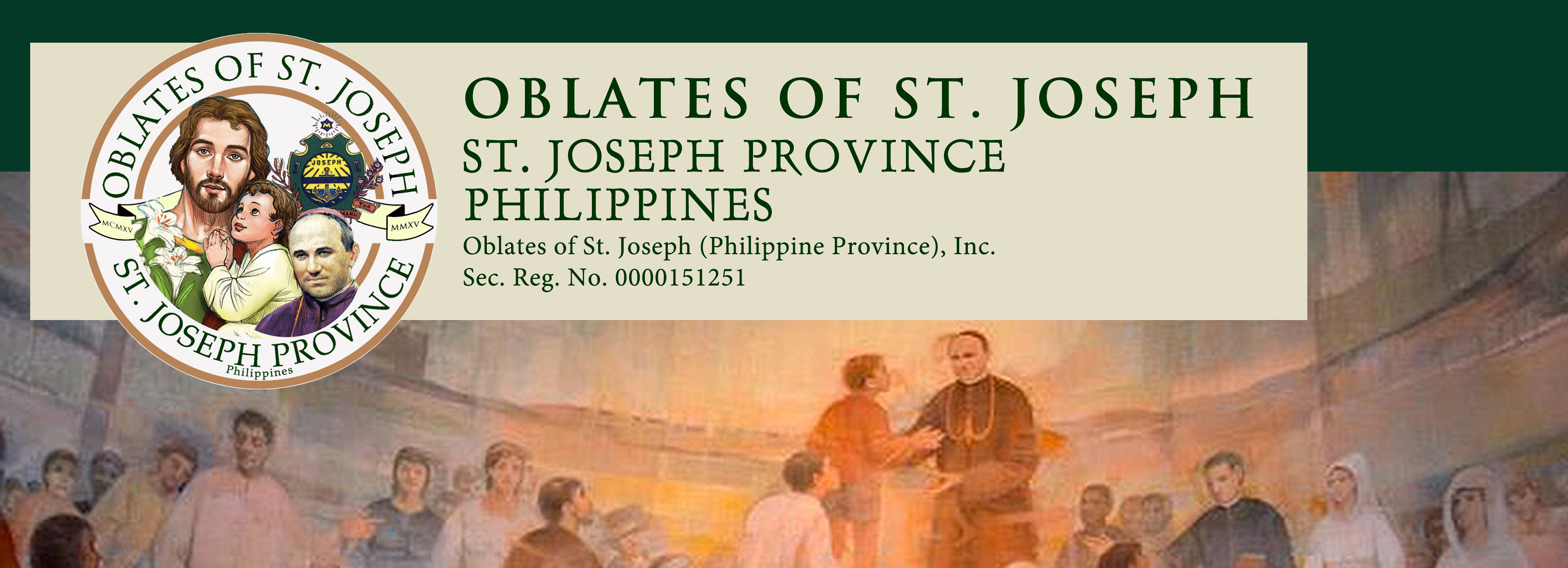THE STORY OF OUR PROVINCE

![]() The St. Joseph Province is the first mission of the Congregation of the Oblates of St. Joseph outside Italy which started in 1915 and was established as a Province in 1987.
The St. Joseph Province is the first mission of the Congregation of the Oblates of St. Joseph outside Italy which started in 1915 and was established as a Province in 1987.
Provisional Art. 1
Provincial Directory
St. Joseph Province
2020
The following parishes and communities were once under the ministry and care of the Oblates of St. Joseph.
MISSION ACCOMPLISHED

St. Michael the Archangel Parish
Lobo, Batangas
In 1915, when the first OSJ missionaries arrived in the country, one of the parishes that were entrusted to them was the Paroquia de San Miguel Arcangel in Lobo, Batangas along with Nuestra Señora dela Merced Parish of Taysan, Batangas.
The parish of Lobo was erected in November 20, 1872. It took almost two years to inaugurate the parish on May 20, 1874. But even before its establishment the people of Lobo had been celebrating in their chapel the feast of St. Michael the Archangel every May 8. The first church was constructed in 1886. It was made of wood and bamboo.
The parish was first administered by the Augistinian Recollect Friars until 1902. When the Diocese of Lipa was erected, the parish was given to the care of a Belgian priest, Fr. Raymundo Esquinet who was also in−charge of the parishes of San Jose, Ibaan, Cuenca, Bauan, Taysan and Tombol.
From November 20, 1915 to March 31, 1917, Fr. Ernesto Fornaca took charge of the parish until the arrival of Rev. Fr. Anacleto Encarnacion as the permanent pastor of the parish.
During the 1970's a concrete edifice was built to replace the old church. However, during the supertyphoon “Yeyeng”, this was totally demolished. From 1980 to 1986 a new church was erected. This was blessed by Most Rev. Mariano Gaviola, DD, then archbishop of Lipa, on May 8, 1987.
 San Isidro Labrador Parish
San Isidro Labrador Parish
Cuenca, Batangas
San Isidro Labrador Parish was erected as an independent parish in 1879 upon the approval of the Archbishop of Manila, Msgr. Pedro Payo, OP. The parish priest at the time of the arrival of the first OSJ missionaries was Rev. Fr. Raymond Esquenet, CICM who welcomed them when they disembarked in Manila in 1915.
From the letter of Msgr. Giuseppe Petrelli, Fr. Giuseppe Anfossi, OSJ together with Br. Giuseppe Macagno, OSJ took charge of the Parish on November 15, 1915.
The Parish was under the guidance and administration of the Congregation. until 1978.

Nuestra Señora dela Merced Parish
Taysan, Batangas
On July 21, 1860, the Most Reverend Archbishop of Manila, Msgr. Jose Anguren on July 21, 1860, erected Taysan as a parish.
Upon its erection, Rev. Fr. Bernardo Jaime, was installed as the new parish priest. He was in office from August 1860 until January 1865. Rev. Fr. Domingo Tiangco succeeded him until his departure on September 21, 1878 It was the letter who conceptualized the building of the church edifice. Third in the line of succession was Rev. Fr. Cayetano Macarandang who was later replaced by Rev. Fr. Gavino de los Reyes. Among the parishioner of Taysan the clan of Mrs. Constancia Viril has blood relationship with Fr. Tiangco while the family of Ms. Isabel Reyes are relatives of Fr. De los Reyes. The Spanish government annually remitted a financial support called the sanctorum
which was destined for the upkeep of the church structure.
On November 19, 1879 Taysan‘s church which was made of cogon grass with small pillars (cogon con pequños hariques
; in the old Spanish record) was destroyed by a typhoon. The arrival of an Agustinian Recollect missionary friar named Fray Toribio Mateo on May 21, 1880 changed the situation. February of 1883, he started the construction of a church edifice with galvanized iron roof sheets and plywood walls. The new church was blessed on December 24, 1884.
After the 1896 Philippine Revolution, the parish was left without a pastor. But through the efforts of the first bishop of the Diocese of Lipa, Msgr. Giuseppe Petrelli found and invited the Oblates of St. Joseph to administer the vacant parishes. According to the letter of the good bishop, Fr. Ernesto Fornaca, OSJ together with Br. Giovani Batista Caemra, OSJ took charge of the Parish on November 15, 1915. Through the years, the OSJ took good care of the parish, both the edifice and its faithful.
The benevolent inhabitants of Taysan together with other supporters decided to restore their parish church on September 24, 1970 under the guidance of the then Bishop of Lipa, Most Rev. Alejandro Olalia, D.D. a committee on the church restoration was composed. Repairs were initiated on December 1970 and lasted until August 25, 1973.
The Parish was under the guidance and administration of the Congregation until 2011, a total of 96 years.

Invencion
de la Sta. Cruz
Alitagtag, Batangas
Before the Oblates of St. Joseph took charge of the parish, a Belgian Priest, Fr. Esqinuet, was administering the parish together with two others.
The parish of Alitagtag was once part of the parish of Bauan, Batangas. A church was built on January 15, 1910 in a land donated by Sixta Amurao, Cornelia Castillo and Eusebio Ylagan. It was formally erected on April 13, 1923 with Fr. Esquinet as the first parish priest. It was dedicated to the “Invencion dela Sta. Cruz” (“Finding of the Holy Cross”).
In June 1927 to March 1929, Fr. Luis Mortera, OSJ was assigned as its second parish priest. He served in the parish until March 1929. The administration of the parish was given to the secular priests of the diocese.
The wooden church was totally destroyed during the Second World War in 1943. A new church was built in 1957 during the administration of Rev. Fr. Alejandro Lualhati. But in 1977, the edifice was totally replaced by a shrine spearheaded by its parish priest, Msgr. Francisco Aguila.

Sta. Rita de Cascia Parish
Sibalom, Antique
Sibalom was founded as a Parish in 1737 with Sta. Lucia as Patron Saint. In 1740, it was assigned a Priest of its own and having Bugasong as its visita until 1745.
In 1745, Bugasong became an independent Parish and Sibalom was administered by the Priest from Hamtic until 1753. In 1753, Sibalom became an independent Parish with Fr. Santiago Rodriguez as its first parish priest.
The Parish in Sibalom was the richest Parish in the Province during the Spanish Period from the middle of the 18th century onwards. Indicative proofs of this are the five big early Spanish era bells. To have a church bell during that period was expensive.
After opening its first mission in Iloilo, the Oblates of St. Joseph were invited by Msgr. Raul Jose Quimpo Martirez, bishop of the Diocese of San Jose, Antique to administer this parish in 2001. Rev. Fr. Delbert Jardinaso, OSJ was appointed as the first OSJ parish priest with Fr. Ferdinand Jauod, OSJ as parochial vicar.
But this was short-lived. In 2005, the Province closed the mission.

Silong Tanglaw
Brgy. Tatalon, Quezon City
In memory of her son‘s wife, Rose, who died of cancer and as an offering to God, Mrs. Rosario Jacinto donated a 1,250 square meters of prime land along Gregorio Araneta Ave., cor Kaliraya. in Quezon City in 1989 to establish any charitable institution .
Mrs. Felicidad L. Viray, a retired Regional Director Of the Bureau of Internal Revenue and Fr. Sonny G. Ramirez, OP, then conceptualized the establishment of a Foundation that will render services to the society‘s defenseless members, the streetchildren. Their endeavor was strongly supported by professional, socio−civic religious leaders whose vision is to improve the quality of life of Filipino streetchildren.
Since its inception, the personnel have been assisted by the Missionaries of the Child Jesus (MCJ) Sisters. Due to the demads for a close supervision of the children the board of directors decided to turn over the administration of the center to a male religious congregation, the Oblates of St Joseph. Fr. Gerardo Yabyabin, OSJ was appointed and acknowledged as the center‘s new Program Director. He was assisted by Br. Anthony Casipe, OSJ as House Economo.
However due to some legal constraints in the renewal of the agreement between the Province and Foundation, the Provincial Council had no other recourse but to give up its administration and supervision of Silong Tanglaw on May 1, 2012.

